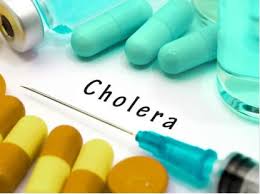
Cholera outbreaks have claimed nearly 5,000 lives across Nigeria in the past five years, despite huge investments by government and international partners to curb the disease, latest figures from the Nigeria Centre for Disease Control and Prevention (NCDC) have revealed.
According to NCDC data, a total of 4,778 people have died of cholera between 2020 and 2024, with hundreds of new cases and deaths still being reported in 2025.
So far this year, more than 300 deaths have been recorded nationwide. In Zamfara State, the government announced over the weekend that 179 people had died out of 12,052 suspected cases as of September 2025.
Two weeks earlier, Bauchi State Deputy Governor, Auwal Mohammed Jatau, confirmed 58 additional deaths and 258 new infections across 14 local government areas of the state.
Health experts have expressed growing concern over the persistence of cholera in Nigeria, despite billions of naira in funding directed toward water, sanitation, and hygiene (WASH) programmes by both government and development partners.
These efforts include annual budgetary allocations, a $700 million World Bank loan aimed at expanding access to clean water and sanitation, a $2 million United Nations grant for emergency response, and the donation of hundreds of thousands of Oral Cholera Vaccine (OCV) doses by the United Nations Children’s Fund (UNICEF) and the World Health Organization (WHO).
Figures from the NCDC show that in 2020, Nigeria recorded 3,513 suspected cases and 95 deaths, representing a 5.3 per cent case fatality rate (CFR). The outbreak worsened dramatically in 2021, when 111,062 suspected cases and 3,604 deaths were reported across 33 states and the Federal Capital Territory, marking one of the deadliest cholera surges in recent memory.
Cholera, caused by the Vibrio cholerae bacterium, is an acute diarrhoeal infection spread mainly through contaminated food and water, often fuelled by poor sanitation and limited access to safe drinking water. Outbreaks typically peak during the rainy season (May to October), when flooding and contamination of water sources increase transmission risks.
Public health authorities warn that unless Nigeria intensifies investment in clean water infrastructure, environmental sanitation, community health education, and preventive vaccination, cholera will remain a recurring public health challenge, particularly in rural and flood-prone areas.



